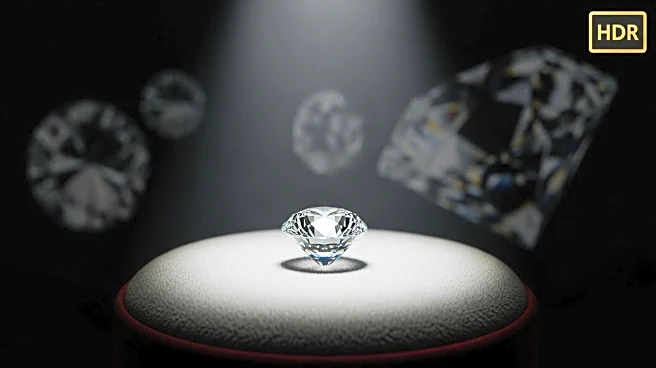What's Happening?
Oded Mansori, co-founder and managing partner of Belgian gem trader HB Antwerp, has criticized the current diamond selling processes, describing them as opaque and inefficient. He argues that the reliance on tenders and auctions resembles a casino, leaving producers vulnerable during economic downturns. The diamond market is experiencing a prolonged slump due to global economic uncertainty and the rising popularity of lab-grown stones. Countries like Botswana are facing reduced revenues, and miners such as Burgundy and Lesotho's Letseng have had to lay off workers. Mansori suggests that producers' revenues should be tied to the polished value of stones rather than gambling on rough sales in opaque auctions. HB Antwerp operates a profit-sharing model with Lucara Diamond Corp, buying stones based on their estimated polished value, which has proven more profitable.
Why It's Important?
The diamond industry's current selling processes are contributing to financial instability for producers, especially during economic downturns. By revamping these processes, producers could potentially earn up to 40% more revenue, according to Mansori. This shift could stabilize the industry, protect jobs, and ensure better financial outcomes for producer countries like Botswana. The move towards tying revenues to polished stone values could also encourage transparency and efficiency in the market, benefiting both producers and consumers.
What's Next?
If the industry adopts Mansori's proposed model, it could lead to significant changes in how diamonds are sold globally. Producers may begin to shift away from traditional auction systems, opting for models that offer more predictable and stable revenue streams. This could also prompt regulatory changes and new industry standards to support these practices.









